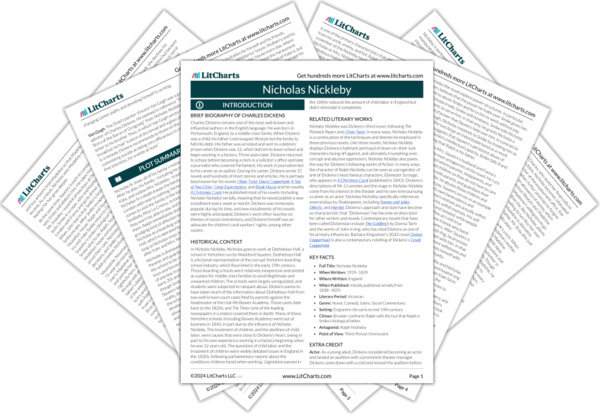Henrietta’s doubts about her marriage foreshadow events that will occur later in the novel. Mr. Crummles displays his theatrical and occasionally over-the-top nature, as he so fully commits to his role as Henrietta’s father that he begins to cry. Mr. Folair, who is the troupe’s leading comedic actor, reveals his tendency to put his foot in his mouth by making jokes that offend others.
